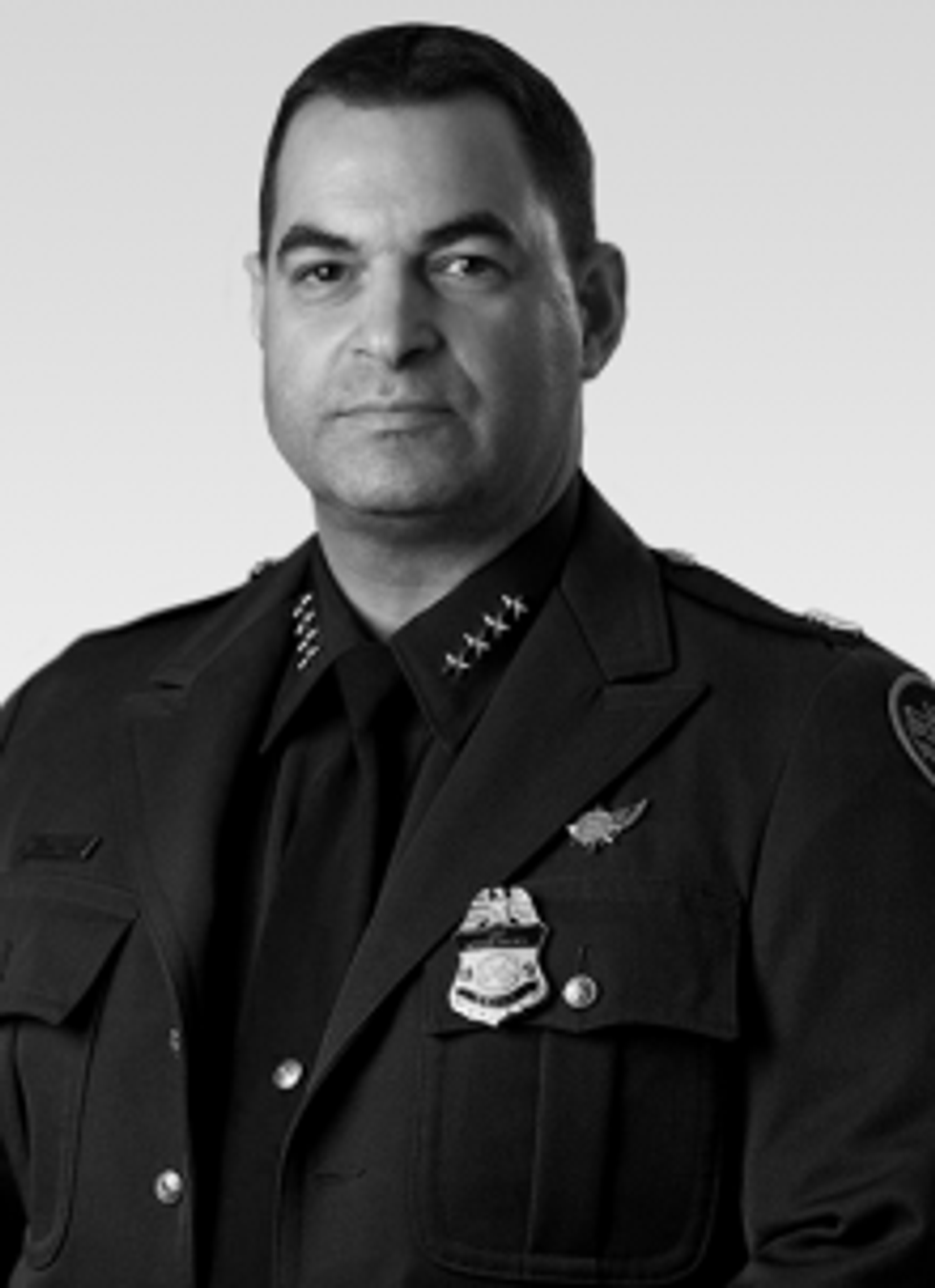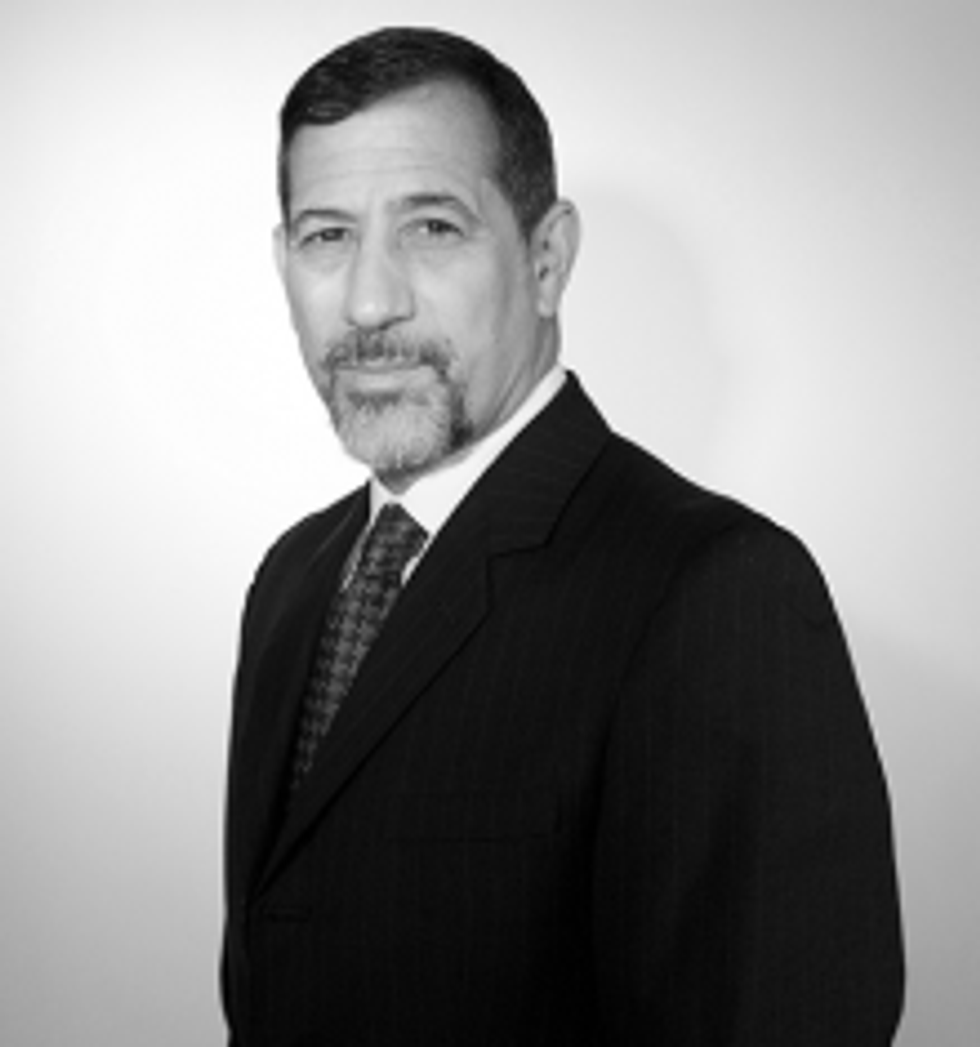The U.S. has been fighting a global network of violent Islamic extremist organizations like ISIS and Al-Qaeda for close to 20 years, but as the U.S. continues to experience mass shootings at home - 17 so far in 2019 - the question of how to address the threat has become a pressing, and politically divisive issue.
According to FBI Director Christopher Wray, since 9/11, more Americans have died in domestic terrorist attacks than in international attacks. The Bureau says it has made close to 100 domestic terrorism arrests in 2019, many of them involving white supremacy.
Experts say there is a need for a much broader approach that goes well beyond the responsibilities of a single federal agency or a single legislative effort, to address the threat.
The U.S.’ Achilles heel before 9/11 was silo-ed government and the lack of sharing information across agencies that had different touch points. A new version of that – as the U.S. tackles the issue of domestic terrorism – may also need to include communication within and between communities.
Bottom Line:
Some 18 years after 9/11, the United States has an excellent understanding of how individuals move toward radicalization. If the problem of terrorism - that is driven by any ideology or set of beliefs, such as hate - is going to be addressed in any meaningful way, it will take a combination of government and community working together to understand and address the messages that feed that ideology and understand how to counter them.
Background:
- Between July 28 - August 4, 2019, three separate mass shooting attacks took place in Northern California, El Paso, TX and Dayton, OH claiming the lives of 37 people. Dozens more were injured.
- The FBI is treating the shootings in California and El Paso as domestic terrorism investigations and released a statement on August 4, 2019 that reads in part “The FBI remains concerned that U.S.-based domestic violent extremists could become inspired by these and previous high-profile attacks to engage in similar acts of violence.”
- Officials believe that those who carry out acts of domestic terrorism are often radicalized online.
- The global footprint of online violent extremism is incredibly opaque, exacerbating the challenges of combatting the various violent ideologies that attract mostly young, marginalized men around the world.
- There is currently not a government agency that is responsible for designating domestic organizations as ‘terrorist’ organizations.
- Some experts are calling for U.S. Intelligence agencies, led by the Office of the Director of National Intelligence, to play a more direct role.
- The National Counterterrorism Center (NCTC) currently serves as the U.S. government’s coordinating intelligence agency for analyzing, understanding and responding to terrorist threats.
- The Acting DNI, effective August 15, 2019, is current NCTC Director Joseph Maguire.
The Cipher Brief spoke with three Cipher Brief experts, all from different backgrounds, to get a more holistic view of the issue and the solution.
We spoke with Cipher Brief expert and former Chief of U.S. Border Patrol, Michael J. Fisher about the need to get the facts right and have a national conversation based on fact, not speculative headlines.
We spoke with Cipher Brief expert and former diplomat and author of How We Win, Farah Pandith about the need for multiple parts of society to come together to counter the radical messages that often lead to acts of terrorism.
And we spoke with Cipher Brief expert and counterterrorism and homeland security expert Bruce Hoffman about the existing opportunities to better leverage federal counterterrorism resources toward the threat of domestic terrorism.
UNDERSTAND THE FACTS FIRST
In the subsequent hours after the shooting, news organizations that had few hard facts to go on, began speculating about motives in the shootings. In one case, a government official pleaded with the media to stop reporting speculation and give authorities the opportunity to review the evidence they were collecting. Such a rush to find a headline does little to inform a more informed understanding of the issue.
Michael J. Fisher, Former Chief, U.S. Border Patrol
"People are trying, maybe because of emotional frustration, to just point to one thing and say, "Well we just need to stop this, or fix that, or reduce this." It occurred to me that in the case of these most recent domestic shootings, I have not seen or heard of any robust, objective, non-partisan root cause analysis that would at least take a look at the facts and really draw down to see if there's any correlation. We all know that these investigations are going to continue for weeks on end.”
“I think oftentimes we put events like these into categories,” says Fisher. “We tend to compartmentalize the events, which makes understanding of all the motives across the board, more difficult. Do we really know the attack the motive in every case? Is it mental health? Video games? The whole debate around video games is frustrating. I don't even know if any of these guys played video games or not, and even if they did, there are millions of people who play video games that don't engage in this kind of behavior, so you've got to watch for the facts and understand the context. It's really hard to have a fact-based discussion in the immediate aftermath of a crisis because of the emotions that are involved. People just get to the point where they’re really frustrated and say, "Why can't we solve this problem?" But it is very complex because there are a lot of fourth amendment protections and civil rights and civil liberties that are involved.”
UNDERSTAND THE IDEOLOGIES AND THEIR DRIVERS
Farah Pandith, Former Special Representative to Muslim Communities, U.S. Dept of State
“I think it's dangerous to say that every kind of extremism is exactly the same. That's not accurate. However, the rise of ‘us versus them’ has so many similarities across extremism, and the fact that young people - the millennials and Generation Z - are two demographics that are true digital natives and how they are learning from each other around the world is striking. We are looking at ideologies that go across borders and are connected by hate, so somebody who's doing something in Oslo, and seeing what happened with the July 22nd Norway massacre or Christchurch or in another part of the world, people are learning from each of these events. They're copying platforms and systems to exhibit power and hate.”
“What I've seen when I look at this issue is that there are parallels around age and around how people absorb the rhetoric and the narratives online and offline,” says Pandith, who wrote in detail about strategies to combat extremism in her book, How We Win. “I also see the response from communities happening in the exact same way with a rejection of the ideology. There are also a lot of political questions about why things haven't happened. Today, my response is to ask why are we so lazy on hate? Why are we suggesting that there are a series of excuses for what the killers are doing, when in fact, we understand that the radicalization process is happening not in an instance, but through a series of touch points that the attackers have been exposed to. Communities have seen a systematic change that has allowed for a rise of hate. And government has looked at the rise of hate in some areas and not in others and has not responded. So when we're looking at this, when we're looking at the parallels between the white supremacist who takes a gun and does something vile and horrible, or a millennial who sets off a bomb in Boston, these are radicalized young people who have been fed an ideology that has moved them emotionally and has triggered a change in them around the issue of identity. That's the one parallel that is very, very strong.”
UNDERSTAND THE RESOURCES AVAILABLE TO ADDRESS THE ISSUE IN A POST 9/11 WORLD
Bruce Hoffman, Counterterrorism, Homeland Security Expert
“The National Counterterrorism Center’s mission is to bring a whole of government approach to the counterterrorism problem and be the central repository for analysis and strategic operational planning, and framing it in 2004, when the only enemy we really had was Al Qaeda, and the threat was singularly foreign, it made sense not to even tackle the thornier issues of focusing on domestic or wholly internal threats that we have now. But 15 years later, the situation is completely different. It's not one terrorist organization like it was a decade and a half ago. Now we're talking about a much more amorphous threat from multiple adversaries, domestic as well as foreign. And if the terrorism threat is changing and evolving, one of the lessons of 9/11 was that we weren’t adapting and adjusting to the terrorist evolution, and that's why we have to break down some of the walls within the intelligence community, that the 9/11 commission cited, that prevented the sharing of information."
“Then you have to look at the National Counterterrorism Strategy which the White House and National Security Council issued last fall,” says Hoffman. “All three previous iterations of the National Counterterrorism Strategy basically just focused on Al Qaeda and a foreign threat. This iteration was remarkable because it expanded beyond Al Qaeda to ISIS, to the Iranian Threat Network, but also was very explicit in describing a rising domestic terrorism threat from a range of adversaries including violent far-right as well as violent far-left extremists and various single-issue groups. So here you've got the capstone strategy, counter terrorism strategy, of the United States, illuminating explicitly the appearance of an array of new threats, yet except for the FBI's response as the lead investigative agency for counter terrorism in the United States, nothing much has changed.”
Now the FBI, of course, is intensely focused on the mass shooting threat and domestic terrorism, but the spirit behind the 2004 presidential directive, an executive order, was that we can't leave it to any one agency to ensure the security of the American people. So, as the threat is changing and evolving, we're falling into the trap that Barbara Tuchman in The Guns of August wrote about half a century ago, about the generals who prepared to fight the last war.
Looking Ahead: Addressing the issue of domestic terrorism requires the messaging of fact, not speculation and the willingness by communities to raise awareness about the ideologies that drive terrorist acts. Communities need to get involved on a local level and federal officials need to look at all of the resources at their disposal to better address the threat.
Bruce Hoffman, Professor, Georgetown University
“Unfortunately, the reality of 21st century security, at least as we go into the 2020s, is that you have to be able to cover the waterfront, and the problem is that the waterfront is expanding. So, the question is really what additional tools can be brought to bear toward keeping Americans safe? In this rapidly changing environment, you need the additional analytical brain power of an entity like NCTC which I think everybody would agree has been enormously successful and effective at protecting us from foreign terrorist threats.”
“We also need a DNI who is not only completely conversant with the powers of the intelligence community, its authorities and its legal restrictions in this balance between preserving fundamental civil and constitutional rights but still effectively protecting the country,” says Hoffman. “The country will be best served by someone who's also completely knowledgeable about this range of threats including terrorism. This means you have to have a uniquely qualified individual who's been in the intelligence community, who has the depth of decades of experience assessing and responding to a broad array of evolving threats and who will be an advocate for proactively addressing these emerging threats as opposed to what we're doing now, which is trying to figure out a way to respond to them after we have two dozen people dead in a weekend.”
Read more in The Cipher Brief
Engage with the experts in person at The Cipher Brief’s 2020 Threat Conference March 22-24 in Sea Island, GA. Seats are limited. Request yours today.

















